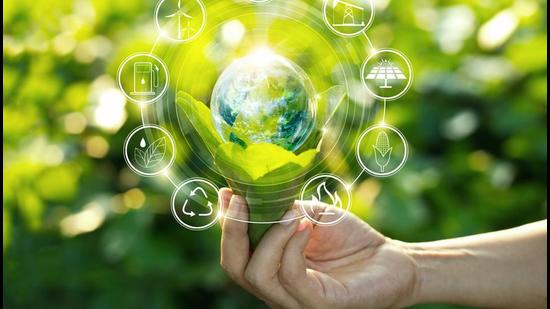 Exclusive
Exclusive
As Reliance promises leap into clean energy, green economics becomes mainstream
At the end of June this year, Mukesh Ambani, chairman of Reliance Industries, announced a ₹75,000 crore (US$10bn) investment plan into clean energy in India over the next three years. This announcement was met with the usual eye roll. A perceived shift to clean energy by a big oil and gas giant is fraught with both scepticism and optimism.
However, an announcement of this nature by the biggest oil and gas company in India is a reinforcement that clean energy is the future. These decisions are driven by the market, which values companies that are investing in sustainable energy choices.
The rationale of the move
Given that most of the funding is now available through the Environmental, Social and Governance (ESG) funding route, companies are able to access this pool of capital. Reliance’s decision to venture into the clean energy space allows them to raise more funding for their new business and raise its market value. Companies that are still betting big on fossil fuels have seen the erosion of their shareholder value and increasingly, there is pressure from the boardroom to invest sustainably. Therefore, more oil and gas companies are likely to follow suit and invest in more sustainable energy choices.
Also Read | Paytm to file papers for $2.3 bn IPO next week
Major players making big clean energy commitments will drive more investment into this space. This will also drive prices down further for renewable energy and battery storage, and help India achieve scale up domestic manufacturing. Reliance’s plan is to develop gigafactories to develop and manufacture solar modules, batteries, fuel cells, and more. If successful, this will help strengthen India’s input value chain and help protect the country from the vagaries of price volatility internationally.
With the electricity demand likely to pick up after the Covid pandemic’s second wave in India, and with the government’s push for electric vehicles, Reliance’s target of 100 GW of renewable energy is both optimistic and achievable, but perhaps with an adjustment to their timelines.
India has been heavily importing solar cells and modules from countries such as China, Thailand, and Vietnam. The government’s aim is to increase domestic production and they have provided incentives through schemes like the Production Linked Incentive (PLI). With falling prices of renewable energy and battery storage, the share of renewable energy is likely to keep going up and thus, the new as well as existing demand, is likely to be met through renewable energy.
With the increasing pressure for climate action, the oil and gas sector is likely to have a downward trend and the pace of decrease will accelerate in the coming years. On the other hand, clean energy is on an upward trend, so it makes sense for Reliance to diversify and increase its footprint in the clean energy space.
Also Read | India’s electric vehicle transition
The move will also involve the production and manufacturing of various inputs and flexible solutions to address the intermittency issues of renewable energy, and create a fully integrated, end-to-end renewable energy ecosystem. By developing these technologies in India, Reliance can also drive the prices down, help build economies of scale and because of its strong market position, access global capital at much cheaper rates.
An emerging duopoly?
With Reliance’s entry and Adani Energy as another big player in the market, it is likely that these companies will drive the green growth in India at a large scale. But while there are valid concerns about an emerging duopoly, do note that there are also large commitments from other public and private entities such as NTPC, Tata Power, and Renew Power. They will have a substantial share in the pie. While Reliance and Adani Energy’s shares will go up substantially over the next few years, we can also expect some consolidation to occur. Therefore, the market is likely to be dominated by a few key players but India will not end up in a duopoly market in the clean energy sector.
Reliance’s expansion in the domestic manufacturing of solar cells, modules, battery storage, fuels cells and other technologies, will strengthen India’s input in clean energy. This has the potential of not only helping India reduce reliance on imports but benefiting other players due to the availability of domestic products at much better prices. A statement from JSW Energy, which will be procuring products from Reliance Energy to develop their own renewable energy portfolio, shows that other players are upbeat about this development as it will directly benefit their clean energy businesses.
But for this, policy uncertainty is a needs to be addressed. India needs to introduce policy reforms such as Time of Day (TOD) pricing and improve the financial health of distribution companies (discoms). The poor financial health of discoms can be a key bottleneck for India in the adoption of renewable energy.
Vibhuti Garg is an Energy Economist, Lead India at IEEFA.
The views expressed are personal

Please sign in to continue reading
- Get access to exclusive articles, newsletters, alerts and recommendations
- Read, share and save articles of enduring value
As Reliance promises leap into clean energy, green economics becomes mainstream - Hindustan Times
Read More




No comments:
Post a Comment